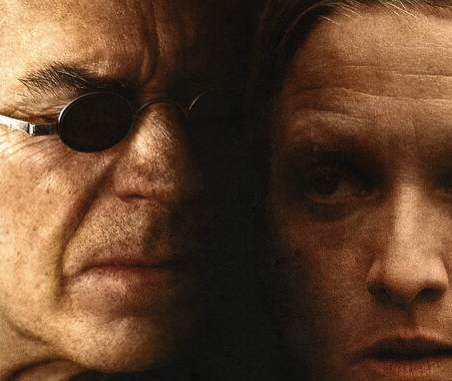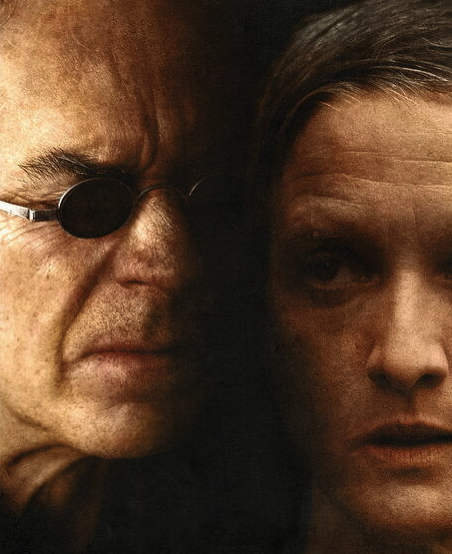
REND Production’s Howard Barker Double Bill is a brave but not entirely successful marriage of two very different plays. The first, The Twelfth Battle of Isonzo is both mentally and, surprisingly, physically draining which leaves one almost unable to cope with the second play, Judith: A Parting From The Body.
 When entering the theatre one is equipped with headphones and told that we cannot leave, if we need to we must raise our hand and say loudly, ”I want to leave” and we shall not be readmitted. The stage is simple; a woman dressed in a wedding dress sits mute and statuesque in the centre of the small stage which is surrounded by a thick detritus of what appears to be rubber sand. The foot lights are pointing at the audience rather than the stage making squinting a necessity. There is a constant sound of a cold wind heaving across a barren tundra. We are told to put on the headphones and the play begins in earnest. One is plunged into utter darkness with the constant wind’s noise making one feel alone and trapped.
When entering the theatre one is equipped with headphones and told that we cannot leave, if we need to we must raise our hand and say loudly, ”I want to leave” and we shall not be readmitted. The stage is simple; a woman dressed in a wedding dress sits mute and statuesque in the centre of the small stage which is surrounded by a thick detritus of what appears to be rubber sand. The foot lights are pointing at the audience rather than the stage making squinting a necessity. There is a constant sound of a cold wind heaving across a barren tundra. We are told to put on the headphones and the play begins in earnest. One is plunged into utter darkness with the constant wind’s noise making one feel alone and trapped.
The story is of a blind couple, Isonzo and Tenna about to marry. Isonzo is very old and decrepit whilst Tenna is but seventeen and on their wedding night they find that each is an intellectual challenge for the other and a battle of wits ensues.
Liam Smith, reading the stage directions, has a voice that seems cold, distant yet fatherly and fits comfortably with the wind. Nicholas Le Provost, Isonzo, sounds old yet wise, his voice gravelly and knowing. Emily Loomes as Tenna, perhaps not as youthful as Barker intended but held her own in juxtaposing Isonzo.
The second play, Judith: A Parting From The Body is far less taxing. It revolves around the biblical parable of Judith who decapitates the invading general Holofernes. Again, as in most Barker plays, it deals with death and sex. The stage has Holofernes, Liam Smith, sitting rigid and manly on a chaise longue on the day before battle looking at three busts of himself. The servant, Kristin Hutchinson, brings in the widow Judith, Catherine Cusack, for the general’s pleasure but he just wishes to talk about death.
Howard Baker described his work as Theatre of Catastrophe encapsulating violence, sex, power and human motivation and these two plays do not flinch from this concept. They are quite Beckett-esque which can sometimes be a downfall as the script must be adhered to with every glance, every movement mapped out for the actor giving them little room for their own interpretation occasionally making one feel that it is a play and not a performance.
The Twelfth Battle of Isonzo is an experience that shall be difficult to forget: the feeling of being alone, blind and dehumanised, drifting on the voices of the actors, at the mercy of fate and the inevitability of one’s mortality. It is tempting to close one’s eyes but a disembodied head or hands will break the visual silence and make one want more.
Judith: A Parting From The Body seems pale by comparison with The Twelfth Battle of Isonzo and, although funny, witty, beautiful and moving, can probably be described as the coffee at the end of a large meal.
25th November – 19th December
By Mark Speed

Leave a Reply